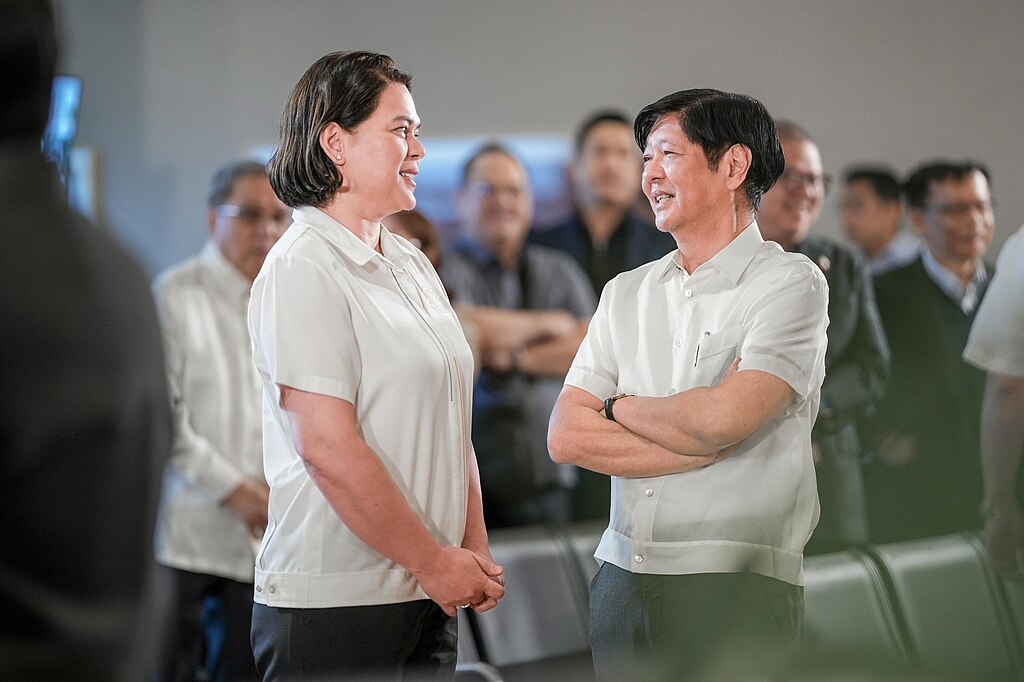The Philippines’ midterm elections have kicked off amid deep political divisions, fueled by the impeachment of Vice President Sara Duterte. The move threatens her political future and intensifies the rift with President Ferdinand Marcos Jr., her former ally.
Their fallout has reshaped the political landscape, turning the elections into a high-stakes battle ahead of the 2028 presidential race. Marcos, limited to a single term, seeks a successor, while Duterte could still run if she survives impeachment.
The May elections will fill 317 congressional seats and thousands of local positions, but the biggest contest lies in the Senate, where 12 of 24 seats are up for grabs. The Senate will also serve as the jury in Duterte’s impeachment trial in June, requiring 16 votes to convict.
A Pulse Asia survey last month showed Marcos-backed candidates leading the Senate race, but Duterte’s camp remains in contention, keeping the vice president's influence alive. Her father, former President Rodrigo Duterte, remains a powerful figure, running for mayor in Davao City alongside his sons.
The crisis erupted on February 5, when the House, led by Marcos’ cousin, Speaker Martin Romualdez, impeached Sara Duterte over allegations of budget anomalies, amassing wealth, and threats against Marcos and his family. Duterte denies wrongdoing, while Marcos has distanced himself from the proceedings.
Political analyst Ronald Llamas sees the impeachment as a pivotal moment, potentially boosting Marcos’ influence by sidelining Duterte ahead of 2028. “If Sara is convicted, the playing field shifts,” he said.
With a power struggle at play, the elections will shape the country’s political future, making it one of the most closely watched contests in years.



 New York Legalizes Medical Aid in Dying for Terminally Ill Patients
New York Legalizes Medical Aid in Dying for Terminally Ill Patients  China Warns US Arms Sales to Taiwan Could Disrupt Trump’s Planned Visit
China Warns US Arms Sales to Taiwan Could Disrupt Trump’s Planned Visit  Trump Allows Commercial Fishing in Protected New England Waters
Trump Allows Commercial Fishing in Protected New England Waters  Trump Rejects Putin’s New START Extension Offer, Raising Fears of a New Nuclear Arms Race
Trump Rejects Putin’s New START Extension Offer, Raising Fears of a New Nuclear Arms Race  Federal Judge Restores Funding for Gateway Rail Tunnel Project
Federal Judge Restores Funding for Gateway Rail Tunnel Project  NATO to Discuss Strengthening Greenland Security Amid Arctic Tensions
NATO to Discuss Strengthening Greenland Security Amid Arctic Tensions  U.S. Sanctions on Russia Could Expand as Ukraine Peace Talks Continue, Says Treasury Secretary Bessent
U.S. Sanctions on Russia Could Expand as Ukraine Peace Talks Continue, Says Treasury Secretary Bessent  Trump Says “Very Good Talks” Underway on Russia-Ukraine War as Peace Efforts Continue
Trump Says “Very Good Talks” Underway on Russia-Ukraine War as Peace Efforts Continue  Ukraine-Russia Talks Yield Major POW Swap as U.S. Pushes for Path to Peace
Ukraine-Russia Talks Yield Major POW Swap as U.S. Pushes for Path to Peace  U.S. Announces Additional $6 Million in Humanitarian Aid to Cuba Amid Oil Sanctions and Fuel Shortages
U.S. Announces Additional $6 Million in Humanitarian Aid to Cuba Amid Oil Sanctions and Fuel Shortages  Nighttime Shelling Causes Serious Damage in Russia’s Belgorod Region Near Ukraine Border
Nighttime Shelling Causes Serious Damage in Russia’s Belgorod Region Near Ukraine Border  Trump Lifts 25% Tariff on Indian Goods in Strategic U.S.–India Trade and Energy Deal
Trump Lifts 25% Tariff on Indian Goods in Strategic U.S.–India Trade and Energy Deal  U.S. Lawmakers to Review Unredacted Jeffrey Epstein DOJ Files Starting Monday
U.S. Lawmakers to Review Unredacted Jeffrey Epstein DOJ Files Starting Monday  UAE Plans Temporary Housing Complex for Displaced Palestinians in Southern Gaza
UAE Plans Temporary Housing Complex for Displaced Palestinians in Southern Gaza  Missouri Judge Dismisses Lawsuit Challenging Starbucks’ Diversity and Inclusion Policies
Missouri Judge Dismisses Lawsuit Challenging Starbucks’ Diversity and Inclusion Policies  Newly Released DOJ Epstein Files Expose High-Profile Connections Across Politics and Business
Newly Released DOJ Epstein Files Expose High-Profile Connections Across Politics and Business 































